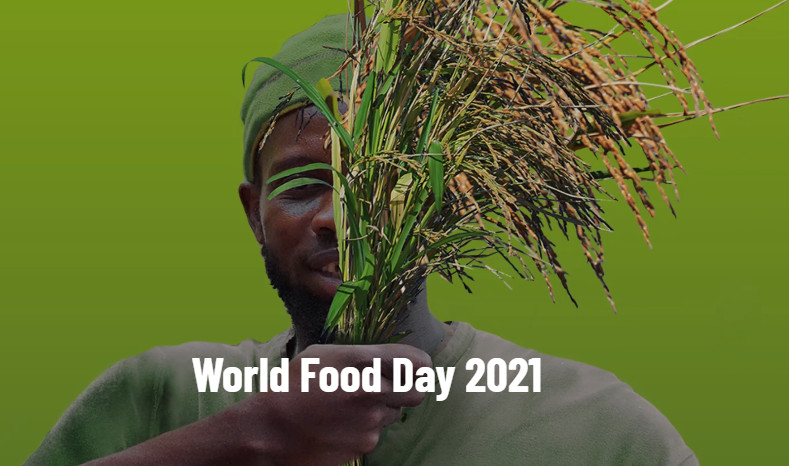Trade and the future of food

No one can survive without food. And yet, the world’s food systems are badly in need of reform. To ensure universal access to adequate nutrition, as well as long-term environmental sustainability, we need to change how we produce, process, transport, and consume food. World Food Day should spur us to consider how to achieve this, and to recognize that trade must be part of the solution.
The recent United Nations Food Systems Summit highlighted not only the need for comprehensive reforms, but also the key role that governments must play in improving how food markets function. This will require deeper international cooperation. As the COVID-19 pandemic has reminded us, joint action is essential to enable all people to live healthy and dignified lives.
Barriers to trade in basic necessities, such as food and medicine, frustrate efforts to improve nutrition and health, thereby undermining the basis of future prosperity. By contrast, effective trade can reduce hunger and malnutrition not only by ensuring the delivery of food supplies, but also by creating decent work and raising incomes.
The urgency of the problem has become undeniable. We already know that climate change is altering temperature and precipitation patterns and leading to more frequent and extreme weather events – all of which can wreak havoc on food production. In such an unstable and unpredictable context, global food markets provide a lifeline to countries or regions facing sudden shocks.
We are already falling behind. In 2015, the world adopted the Sustainable Development Goals, including SDG 2, which calls for ending world hunger, achieving food security and improved nutrition, and promoting sustainable agriculture by 2030. Six years later, we are nowhere close to being on track to achieving these targets. On the contrary, we seem to be moving backwards, buffeted by headwinds like the pandemic, economic downturns, violent conflict, and climate-related shocks. In fact, hunger and malnutrition rose substantially in 2020: according to the UN, some 9.9% of the world population is estimated to have been undernourished last year, up from 8.4% in 2019.
To reverse this trend and ensure that food systems work for people and the planet, governments must redouble their efforts to update global rules on trade. At the same time, they must abandon policies that distort the rapidly evolving global food market. For example, governments spend $22 billion each year to keep economically unviable fishing fleets at sea – a policy that drives depletion of fish stocks. Farm-support programs can similarly distort food and agricultural markets, with fossil-fuel subsidies compounding the effects.
Governments must find new ways to reverse underinvestment in public goods relating to food and agriculture, especially in low-income countries, while improving the global allocation of scarce resources. Here, they should take advantage of the growing importance of digital trade and services in poor countries.
The challenge may seem daunting. But, with an incremental approach, progress is possible. Next month, at the World Trade Organization’s 12th ministerial conference in Geneva, trade ministers will have an opportunity to devise just such an approach and take important steps forward.
For example, ministers will consider how to end harmful fishery subsidies, which contribute to overfishing and overcapacity, and threaten to drive some species to extinction. Countries could also agree to exempt the UN World Food Programme’s humanitarian food aid purchases from export restrictions, thereby making food more accessible to the world’s poor and those displaced by internal strife or the effects of climate change.
Moreover, ministers will have an opportunity to drive forward negotiations on a slate of issues relating to agricultural trade including cuts in trade-distorting government subsidies and improved access to foreign markets. Here, agreement on concrete measures, as well as on the direction of future talks, would amount to tangible progress toward the food future we need.
World Food Day offers an important opportunity to remember how and why food matters to people. But we must not forget the vital role trade plays in shaping the production, availability, pricing, and quality of that food. No effort to create a more equitable and sustainable food system will be complete without world leaders’ concerted action on trade.
Copyright: Project Syndicate
-- Contact us at [email protected]
-

Equip young people for the future Dr. Winnie Tang
In late February, the inaugural flight of an air taxi from Shenzhen Shekou Cruise Homeport to Zhuhai Jiuzhou Port took only 20 minutes with an estimated one-way ticket price of 200 to 300 yuan per
-

Are we raising a generation of leaders, or of followers? Brian YS Wong
The essence of education is defined not by the facts it imparts, but the potential knowledge it inspires students to individually pursue on their own. Put it this way – the ideal form of education
-

The urgent need for reforms to sex education in Hong Kong Sharon Chau
Nearly one in every four university students (23%) in Hong Kong has been sexually harassed, according to a 2019 report published by the Equal Opportunities Commission (EOC). A 2019 study found that
-

STEAM should be linked to real life Dr. Winnie Tang
In the 2017 Policy Address, STEM (science, technology, engineering and mathematics) education was proposed as one of the eight major directions to promote I&T development. Since then, funding has
-

Let trees speak for themselves Dr. Winnie Tang
I often say that smart cities start with smart planning, but smart planning presupposes adequate, systematic and up-to-date data. This is important not only for city administration, but also for tree















